The rogue Canadian diplomat who took on Assad
As part of a secretive intelligence program, Bruce Mabley helped take on the Syrian regime. Is he a hero? Or did he cross the line?
Bruce Mabley photographed at Avesta Turkish-Kurdish restaurant in Montreal. June 20th 2016. (Photograph by Roger Lemoyne)
Share
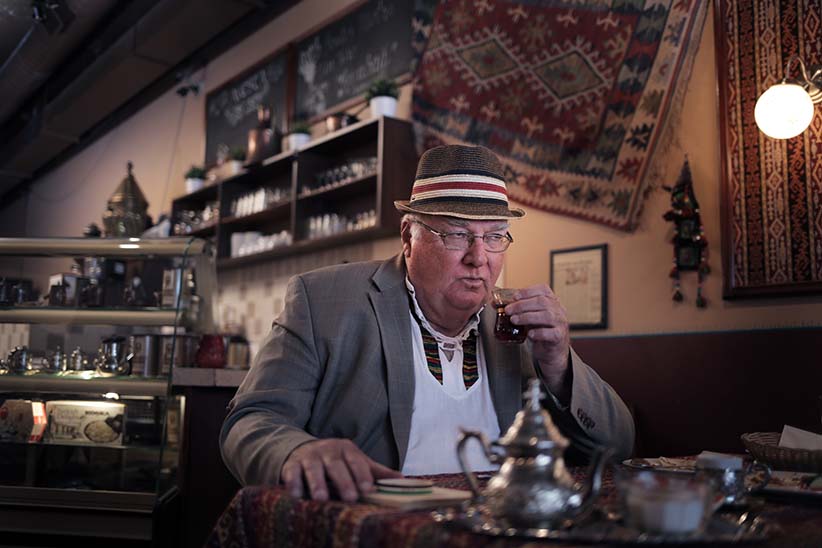
Bruce Mabley was sitting in a meeting room at the British consulate in 2012 trying his best to play the role of the unbiased representative of Canada. A burly 63-year-old philosophy professor turned diplomat, Mabley was well-known for not mincing his words—an uncommon trait for someone in his line of work. Around him were envoys from the Western world’s leading powers—the U.S., Britain, Germany—and a ragtag band of Syrian youth activists who had risked their lives to reach them.
Mabley, who had been stationed since 2010 at the Canadian embassy in Ankara, the Turkish capital, was shocked by what he was hearing. The Syrian regime, the activists said, had begun to systematically crush the peaceful movement for change they had ignited less than a year earlier. Their friends and colleagues, they said, were dying in the hundreds, or disappearing into the abyss of Syria’s state dungeons.
Mabley, swallowing his outrage, did what every other diplomat in the room had done: he calmly reassured his informants that Canada was behind them.
At that moment, one of the young activists rose to her feet. She looked Mabley straight in the eyes and said, “Yeah, but what are you actually doing?”
The words struck him far more than he let on. For months, Mabley had been defying his superiors, taking an increasingly active role supporting Syria’s youth opposition in their fight against the Syrian regime—travelling into Syria, arranging meetings with regime opponents and, eventually, supplying them with crucial security software to help them avoid detection and capture. He had crossed the line between diplomacy and activism, earning him the ire of his bosses in Ottawa. The young activist’s question, he says, only reinforced his belief that what he was doing was right, and that Canada’s official position was morally wrong.
During more than three decades in Canada’s diplomatic corps, handling complex and delicate files from Pakistan to Jordan, Mabley was known for his especially hands-on approach and for pushing the limits of diplomatic discretion. Compared to what Canada’s foreign service had become—in his view, a nesting ground for mediocrity populated in the higher ranks by “yes men” and feather-preeners—his pugnacious style was also exactly what the corps needed, he says.
None of what Mabley did during his posting in Ankara will be celebrated in the annals of Canadian diplomatic history. Indeed, the activism of some of Canada’s diplomats who shared Mabley’s desire to act during that first year of what would become the brutal Syrian civil war has gone largely unnoticed, partly by design. In the world of high-stakes geopolitics, interventionist diplomacy is rarely met with praise, and the interventionist tendencies of Canadian diplomats are often quietly swept under the rug. In Mabley’s case, the decision to join the early fight against the Syrian regime ultimately ended his career in the foreign services.
“Don’t get me wrong,” Mabley says, recounting the experience recently in his hometown of Pointe-Claire, Que., “DFAIT taught me how to work—precision, political and strategic analysis, excellence of prose and narration. It gave me the chance to learn foreign languages and work with some brilliant people and to travel and work in exotic and sometimes dangerous places. I do not regret any of my time in DFAIT. Except the last two years after Ankara.”
By the end of 2011, the Canadian embassy in Ankara had already become the epicentre of anti-regime activity. Canadian diplomats, with Mabley in the lead, were meeting regularly with anti-regime forces, both military and civilian. They were making trips to the Syrian border to meet with the fledgling Free Syrian Army and conducting round tables with dissidents, first at the embassy and, once those were banned by higher-ups at Foreign Affairs, at cafés and hotels.
“Anybody who wanted to know anything about Syria came to us at the Canadian embassy,” Mabley says. “This one guy from the British consulate phoned me up when I was in Istanbul and said, ‘Let’s have breakfast together. I want to hear your views on Syria.’ At the end of the hour-and-a-half meeting, he said, ‘That’s quite a little revolution you’ve got going on down there.’ ”
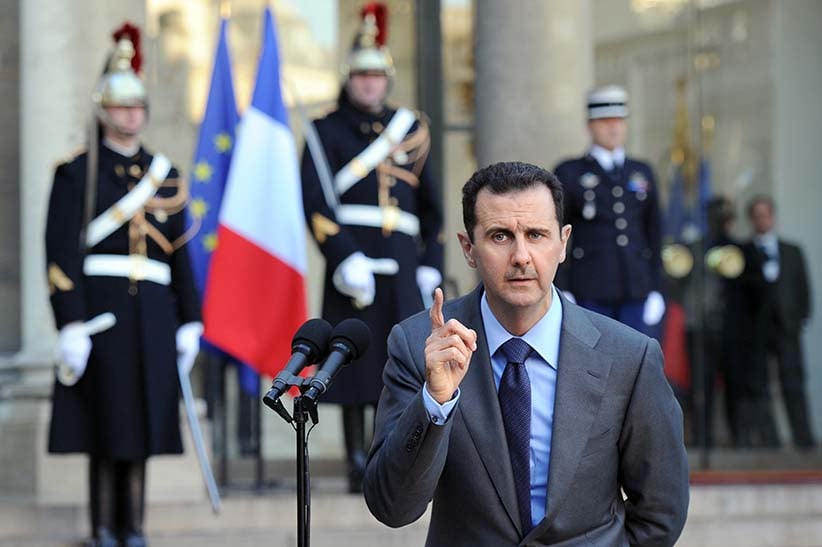
By then, Syria’s democratic spring, which began in March that year, had devolved into a menacing winter. Initial protests calling for political reform were met with vicious regime attacks. By August, the international community, including Canada, was calling for the resignation of Syrian President Bashar al-Assad. But it was not backed by any threats of action, activists complained. Not surprisingly, Assad refused to leave, and by November a full-fledged civil war had claimed the lives of more than 7,000 civilians, according to the Syrian Observatory for Human Rights. Thousands more were arrested, many of them presumably killed in regime torture chambers.
Frustrated by the inaction of the international community, Mabley focused his attention on those youth activists still in hiding. He began searching for ways he could help them avoid the Syrian regime’s secret police, who were reportedly using Iranian technology to track their digital communications.
With the help of the Citizen Lab at the University of Toronto, he acquired Psiphon, an online encryption service that helps users access blocked sites such as Facebook and Skype and remain anonymous online. He then passed it on to his activist contacts. It was a seemingly banal act—an email containing a link distributed among the tech-savvy dissidents—but its repercussions were widespread. Within days, Psiphon had spread. A digital invisibility cloak descended on the most vulnerable activists, protecting them from the secret police. Hundreds, if not thousands of lives, Mabley says, were saved.
Related: What really fuels the Islamic State?
“Bruce headed the cyber war against the Syrian regime,” says Omar al-Haji, 36, an activist who worked closely with Mabley on the Psiphon affair. “My friends and colleagues were getting picked up by the dozens because we didn’t have a safe way to communicate. We needed a safer platform, and Bruce provided that for us.”
Among the Syrian youth opposition in Turkey, Mabley became a kind of folk hero. He carried the bullhorn for their demands for regime change and aggressively lobbied for those most exposed to danger to be flown to Europe, where they could continue their campaigns in relative safety. “He was like my father,” says Saer al-Haji, 40, a British activist who worked closely with Mabley in Turkey. “He genuinely cared about the Syrian people and had the courage to try to help us. He was the only Western diplomat I knew who was meeting regularly with real activists from Syria. Others would only meet influential Syrian dissidents who had been out of the country for years, people who had no idea what was happening on the ground. He tried to connect us with European countries and tell them that we were the opposition they should be supporting. But he failed.”
That failure still weighs heavily on Mabley’s conscience. The pushback he faced from his superiors was baffling, he says. “My boss phoned me once Psiphon was inside [Syria] and said, ‘Bruce, I want you to stop this immediately,’ ” he says. “But stopping then would have meant condemning people to death.”
Ottawa denies it had any hand in helping Syrian activists. “Global Affairs Canada did not provide anti-spyware technology to activists in Syria,” an email response to a Maclean’s query states. In its response, Global Affairs also declined to say if any Canadian diplomat was involved.
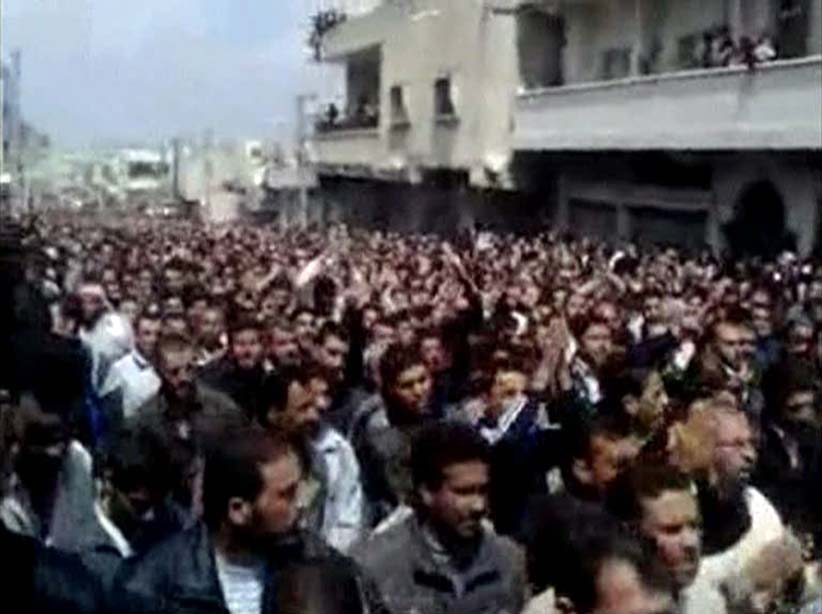
The attitude inside Foreign Affairs (which was renamed Global Affairs Canada), Mabley says, reflects a broader malaise infecting Canada’s foreign policy, characterized by a deep-rooted aversion to playing an active role in global events.
But an active role was well within his job description, Mabley felt. When he first arrived in Turkey, he was recruited into a secretive Foreign Affairs department known as the Global Security Reporting Program, or GSRP. The GSRP, set up in the wake of the 9/11 terrorist attacks, was designed as an alternative to traditional diplomatic reporting. Its officers, according to diplomats close to the program, were handpicked for their ability to think creatively and trained to deal with risks other diplomats usually avoided.
According to a 2007 report published by the Standing Senate Committee on Security and Defence, GSRP officers are not intelligence operatives. “They are dedicated to the collection of information related to questions of strategic stability and security,” the report states. “What is different about them is their specific mandate to develop non-traditional sources and gain access to information of immediate value to DFAIT, as well as the Canadian security and intelligence community and the government writ large.”
In the case of Syria, however, the GSRP found itself at the centre of a fierce debate over the role diplomats should play in revolutionary upheavals. Mabley says he was trained to be actively engaged with events, but that his superiors were preventing him from playing that role. Other GSRP officers in the region, who spoke to Maclean’s on condition of anonymity, say they were equally handicapped, largely because Foreign Affairs had adopted a very narrow view of what Canada should or should not be doing. (Requests for comment from Global Affairs about the role of GSRP in Syria were ignored.)
Chris Kilford, a fellow at the Queen’s University Centre for International and Defence Policy and the defence attaché in Ankara during Mabley’s time there, says the problem was multi-layered. “Ottawa was being bombarded by various perspectives,” he says. “Bruce’s reports were one of dozens going through various channels. I’ve been very impressed by GSRP officers. They are a very passionate group. But there are certain things a GSRP officer may not realize, like high-level discussions with allies.”
Certainly Syria is one of the most complex foreign-policy conundrums the world has faced in decades. There was a great deal of disagreement in the international community over what should be done, Kilford says. Mabley’s call for regime change resonated with Canada’s position during those early months, particularly after the apparent success of the overthrow of Moammar Gadhafi in Libya, in which Canada played a role. But that didn’t last. “Canada’s position on Syria was clear: the Assad regime had to go,” says Kilford. “But by early 2012, it was becoming clear Libya was a mess, and that led to an atmosphere of caution.”
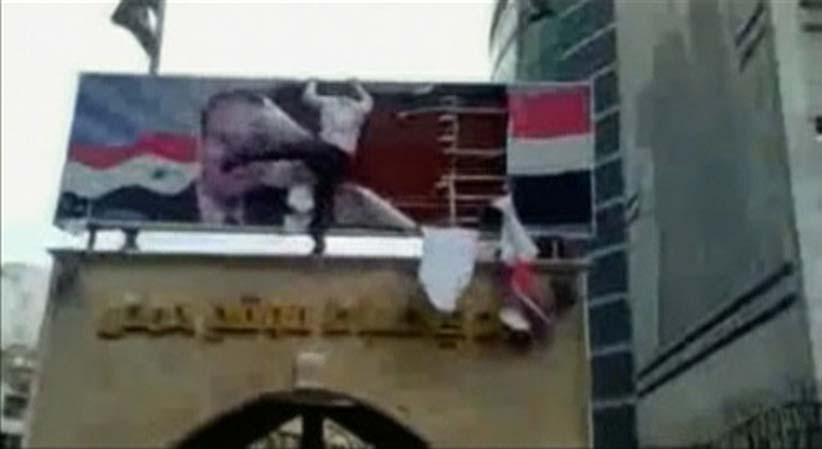
Mabley’s insistence, and the enthusiasm with which he expressed it, began to anger senior diplomats. Even his allies, including those close to the GSRP, advised him to back off.
Whether or not he was right to insert himself into the Syrian war, Mabley was following a rich and sometimes subversive history of diplomatic activism in Canada. In 1979, Canadian diplomats provided a safe haven to American embassy staff during the Iranian hostage crisis and, a decade later, played a lead role helping Czech dissidents smuggle literature out of the former Czechoslovakia during the Velvet Revolution.
“In the end, what I did was not any different than what Peter Bakewell did for Czech dissidents,” says Mabley. “Bakewell died and basically nobody from the department showed up at his funeral. He was held in disdain by the higher-ups. And yet he gave everything he had and he went over that neutral line. He saw something that was being done that was fundamentally, morally wrong and he intervened.”
According to one retired diplomat with close links to the GSRP, who spoke to Maclean’s on condition of anonymity, the program was supposed to legitimize that spirit of active engagement. “How do you get good information without getting out and engaging with the people?”
The steady decline of Canada’s foreign service over the past few decades, he adds, has mirrored the decline in diplomatic engagement globally, especially in terms of the role diplomats play during times of crisis. A culture of fear and protectionism, the diplomatic equivalent of helicopter parenting, has left foreign missions in key hot spots around the world blind to the details of events as they play out.
“You have a situation now where people are so afraid to leave their embassy compound that the connection between diplomatic officers and the local people simply doesn’t exist,” he says. “The notion of duty to protect has expanded exponentially. But adults should be allowed to make decisions for themselves. GSRP officers used to be trained to deal with risks. I don’t think that’s the case anymore.”
When Mabley took the GSRP role in Ankara, the program had already fallen on hard times. Despite the fact that GSRP officers do not “run sources, recruit and pay agents,” according to the Senate committee report, the overlap in terms of what is ostensibly intelligence work has led to clashes with the Canadian Security Intelligence Service.
“CSIS likes to protect its turf,” says Wesley Wark, a visiting professor at the University of Ottawa’s Graduate School of Public and International Affairs. “The problem with GSRP is that it suffers from a crisis of identity. Is it intelligence-gathering or diplomatic reporting? The GSRP was set up to resurrect political reporting on security. It was pushing the limits on intelligence-gathering in the Foreign Service.”
Mabley argues that all diplomatic reporting is a form of intelligence-gathering. The GSRP was simply doing it through unusual means. CSIS officers were the bane of his existence, he adds, partly because they resented his activist approach to diplomacy and partly because of the differences in the ways spies and diplomats operate.
“We don’t meet with the usual suspects,” says Mabley. “The first time the head of the Free Syrian Army was interviewed by a diplomat, it was with me. I went down to the Syrian border with the CSIS guy, and as soon as he saw the Turkish secret service hanging around, he said. ‘Abort the mission.’ I said, ‘What the f–k are you talking about. Abort the mission? This is not a stakeout. Come on. I don’t care if they look at me through the window.’ To be sure, within the department itself, GSRP is ill-defined, but basically it’s intelligence-gathering. But they don’t want to say it because then CSIS would get pissed off.” (CSIS did not respond to requests for comment on Mabley’s role in Syria or its position on GSRP.)
The decline of the GSRP program has severely limited Canada’s ability to understand the world and formulate effective foreign policy, its proponents say. “There is no replacement for good old-fashioned human intelligence, which was the GSRP’s raison d’être,” says the anonymous retired diplomat. “The political sections at our embassies are broken. They read local newspapers for their information. Meanwhile, CSIS has become almost entirely reliant on signals intelligence (intercepting electronic communications) for its intelligence-gathering. Anyone who thinks intercepting an email will provide good information is an idiot. It assumes the person sending the email is an idiot, and they’re not. Human intelligence is context. This is the big contribution GSRP made.”
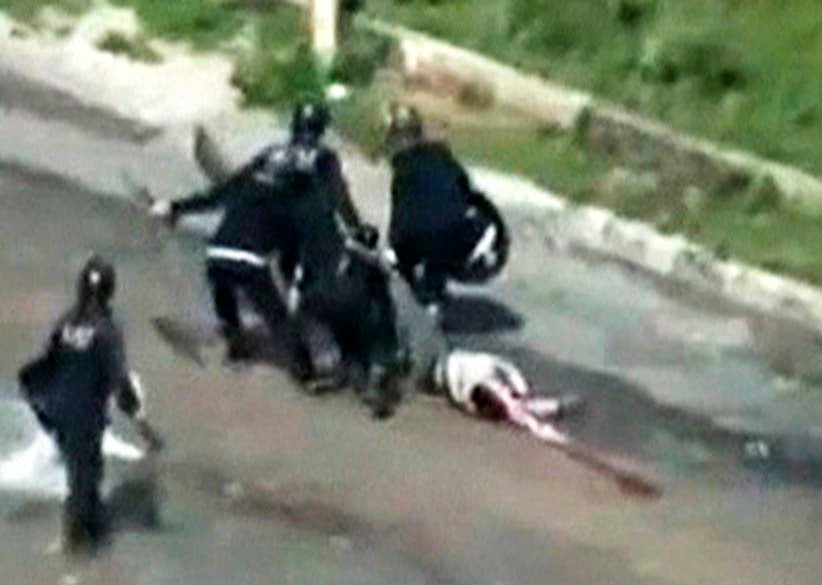
The problem is not limited to Canada. Western nations have struggled to understand the forces behind the Arab Spring in large part because diplomacy has devolved into armchair intelligence-gathering and analysis, say diplomats who spoke to Maclean’s. Those first few months of the Syrian uprising were a period of opportunity, says Kilford, the former defence attaché. “Bruce was pushing for action, sometimes too aggressively, but the problem with the mentality at our foreign missions is that there’s a tendency to keep watch and if something happens, react to it. The lack of action, not just from Canada, but globally, was frustrating. Ottawa was being bombarded by various perspectives, but a lack of good analysis was the enduring weakness.”
Could things have been different? Mabley believes so. He admits Canada alone could not have stopped the humanitarian train wreck in Syria. He lobbied hard with other embassies, providing information through sources he had cultivated. “These young activists were taking on a well-armed regime with little more than their bare hands,” he says. “My contacts were hoping for American support, but I suggested to them that this would not be forthcoming. They said, ‘Well, if you think the West has few options now, just wait.’ It was easy to understand. If you were a rebel commander inside Syria and you needed money to buy arms and the West wasn’t providing anything, you grew a beard and you went to the Saudi contacts or the Qatari contacts and you got money from them. The Islamic opposition was not a Syrian product. It was in part fostered by this nonsense: we mustn’t help them, we mustn’t arm them. That’s what I was telling my counterparts.”
If Canada had taken the lead and pushed harder behind the scenes, Mabley believes there would have been an opportunity to at least limit Islamic State to Iraq. Other diplomats add that the Syrian fiasco should be a wake-up call for Global Affairs Canada. Reform is badly needed at every level, they say, from recruiting to training to the promotion system.
“We need a thousand new appointments to really have the resources we need on the ground,” the retired diplomat says. “But where will the money come from? On average, a diplomatic appointment costs Ottawa $300,000 per year. The money just isn’t there.”
Mabley says he tried to do what he was trained to do as a GSRP officer, and paid the price for it. By the fall of 2013, he had been reassigned to the Africa division as a desk officer, “pushing papers,” and then a year later to “cyclone watch.” “I was basically sitting in front of a computer waiting for natural disasters and recommending if Canada should send out its DART emergency-response team,” he says.
He didn’t last long there. Within a few months, he decided he’d had enough and retired from the service. Still, he hasn’t lost his penchant for stirring up trouble. Last year, he set up his own think tank, Groupe Mackenzie-Papineau, and has published articles calling for major changes to Canada’s Foreign Service. He admits speaking out openly now will likely further erode his relationship with Global Affairs, but that doesn’t bother him.
“What are they going to do to me now?’ he says. “They already ran me out of the service. I could have acted like the others. I could have come up with excuses to do nothing ad nauseam. But that’s exactly the kind of attitude that led the Foreign Service into conformism and mediocrity.”
Change, he adds, is sorely needed, but the building blocks are there for a new and revitalized foreign service.
“It’s either in the DNA of Canadian diplomats or the types of people who are trained as GSRP to take action,” he says. “Not many people know about the key role Canada played during those early months of the Syrian uprising. Canada will always be known for standing beside the youth opposition in Syria when things were tough. It was a moral decision to intervene, and if I could do it all again, I wouldn’t change a thing.”